The question of how the Universe began is something each of us has wondered at some point, but how will everything end?
How will the world end? What will happen to the stars, the planets and the galaxies?
What will happen to the supermassive black holes and spinning neutron stars? What will happen at the end of the Universe?
Astrophysicist Dr. Katie Mack has been contemplating this a lot over the past few years and her new book The End of Everything tackles that very question.
We got the chance to speak to Katie to find out the latest theories on the subject and what it means to contemplate the end of the Universe.

What does an astrophysicist do? What’s your daily working life like?
I am a theoretical astrophysicist, or a cosmologist based at North Carolina State University. I study the Universe from beginning to end and various aspects of the more mysterious things in it: dark matter and black holes, the beginning of the Universe, how galaxies are made. Things like that.
But what it’s like on for an astrophysicist on a day-to-day basis varies depending on what kind of astrophysics you do.
I do theory work. I don't go to telescopes. I don't work in a lab. I sit at a desk in front of my computer and I write down equations and I write code and I talk to people and read papers and try and come up with fun, new ideas.
It's hard to show anybody what I do because I don't have anything tangible to display. I don't have beautiful pictures downloaded from space or anything like that.
It's really more thinking about how the Universe works and trying to figure out ways to test those ideas by contemplating what new telescopes will see in the future, or what new experiments will reveal in their data, and making connections between theories of how the cosmos is put together, how the Universe works, and what we will actually be able to measure.
Do you have free reign or are there certain things you have to have to study?
Well I have my specialties, so I have work that I do according to my experience and background.
Generally speaking, when you get a grant or a position, you write a proposal about what you're going to do and what topics you're going to study and what the interesting questions are, and then you're expected to work on those questions.
But one of the nice things about the field I'm in is that I do get to be very creative and I do have a lot of freedom in terms of what I actually spend my time on.
So I often choose projects based on what sounds really fun and interesting.And the basic criteria are “is this a question that can be answered, would the answer be interesting, and would we learn something cool about the cosmos?”
And if the answers so that all those things are “yes”, then it's a good question to pursue.
Because of the position I'm in, because of the area I've worked in, I do have quite a lot of leeway in terms of choosing the specific topic or method that I'm that I'm using.
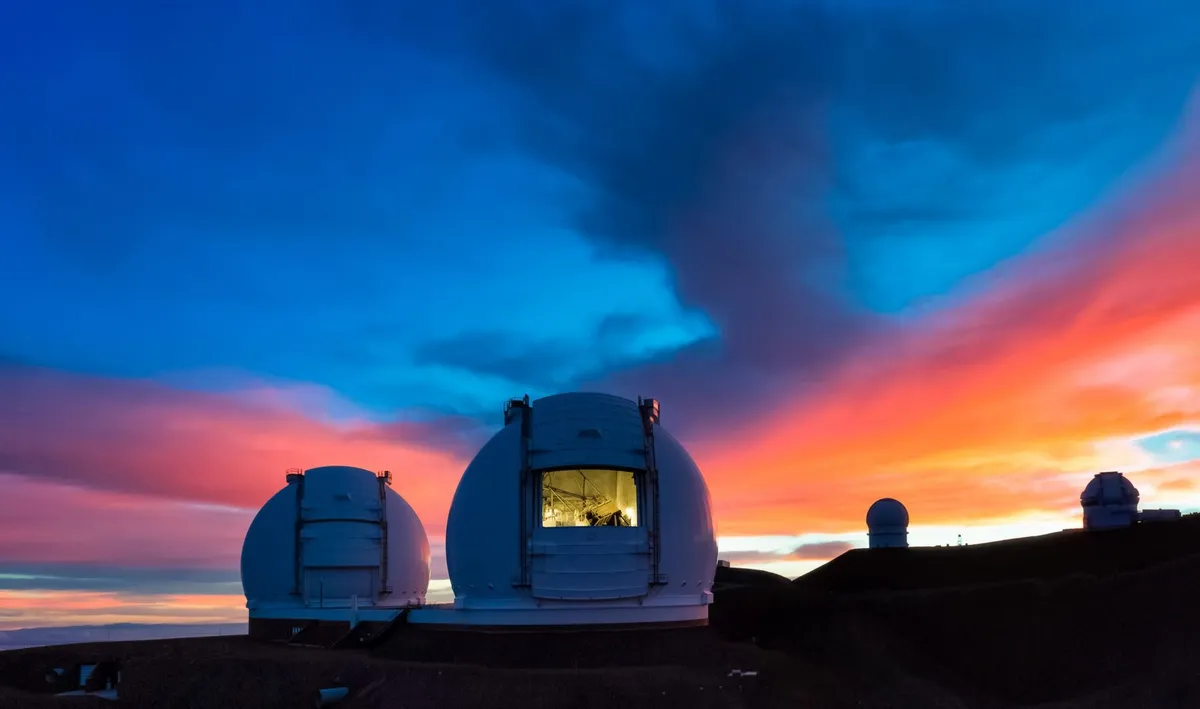
You do a lot of outreach on Twitter and other social media. Do you find communicating astrophysics easy?
It depends on the topic and how easy it is. There are some topics that are very, very hard to get across. And there are some that are just maybe unfamiliar, and I can just talk about them and people think they're cool.
It is a challenge sometimes to be brief and concise and actually get information out, but that's a challenge I enjoy.
Twitter’s kind of a literary medium, right? It's form of communication that has restrictions, like a poem might have, for example.So you have squeeze your message into these boundaries in a way that I find kind of a fun challenge.
And there's also a lot of freedom so you can write big threads, you can link to other information, you can use images and so on.
It is a nice exercise in brevity and clarity because you have to be brief, but by virtue of the medium you have to be clear, because if you're not clear, the fact that it's such an interactive media means that people will reply and ask questions.
You’ll know very quickly if you have stated something clearly or not and you’ll know very quickly what people are getting confused about, what kinds of analogies work for people, what kinds of terms people are unfamiliar with.
And so then it becomes a very useful tool for learning how to better communicate science and learning what really connects with the public.
I find it fantastically useful for just getting better at talking to people and getting better at sharing the things I'm excited about.
Is your book really about the end of absolutely everything?
Well, the title of the book is The End of Everything Astrophysically Speaking. So the ‘astrophysically speaking’ is a parenthetical.
And the parenthetical is meant to specify that I'm really being quite literal in terms of the end of everything. I'm really talking about everything.
Most people don't actually mean ‘everything’ when they say that, but I really mean everything!
It's really about the Universe and how the Universe itself will end and what that will look like, what it would be like to be there if it were happening around us and what the possibilities are.
What we're learning about the Universe right now tells us which direction things might go in the future. It's a very large and very fun topic, and I've really enjoyed exploring these ideas.
There are a lot of books out there about the beginning of the Universe and not a whole lot about the end, so it seemed like it would be a fun thing to explore and a very dramatic idea to wade into without giving too many spoilers.
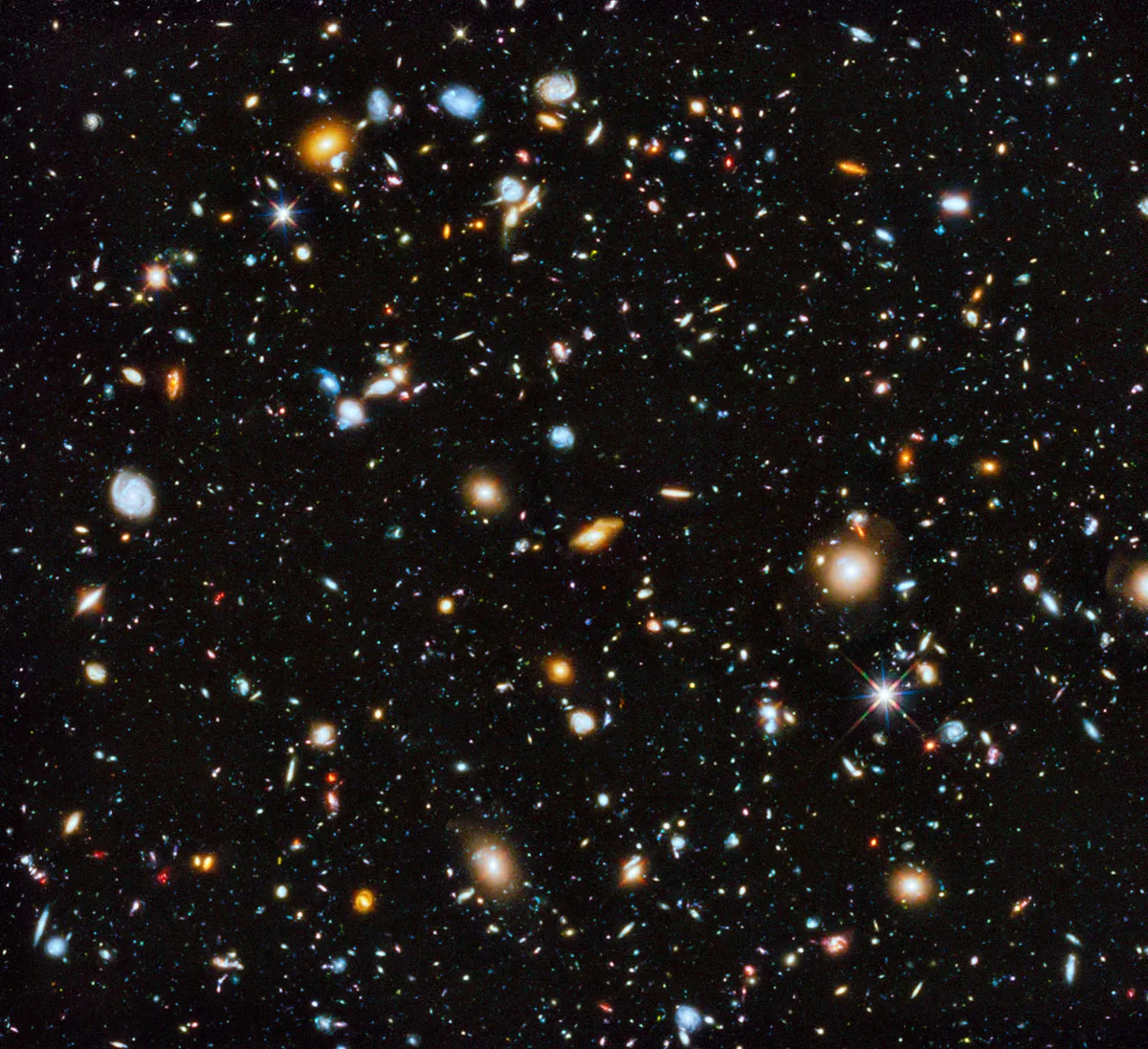
What are the prevailing theories as to how the Universe might end?
The theory most accepted by physicists right now is that we will enter into something called the ‘heat death’.
The heat death is this sort of slow fade. It's called a heat death but it's actually also sometimes called the big freeze. It's this idea that that over time everything is sort of winding down.
The Universe right now is expanding, which means galaxies are getting farther apart from each other, which means that over time there will be fewer interactions between galaxies.
And that'll mean that there's less gas brought into galaxies to form new stars, so over time the stars that are there will start to fade away and die, the particles will eventually decay and even black holes will evaporate.
In the very, very distant future, you end up with this Universe that's very empty, very dark, very cold with not very much happening in it.
And eventually you get to a state called heat death, where really the only thing in the Universe is the waste heat of the destruction of everything in it.At that point you've maximized the entropy, that disorder in the Universe, and nothing can really happen anymore.
That seems to be the most likely scenario. That seems to be the way we're headed based on extrapolating where things are right now.
But in the book, I go through four other possibilities that have different motivations in terms of their reasons for occurring.
None of these is a happily-ever-after scenario, but they're all kind of interesting in their own way and can tell us something about how we study the cosmos and what we're learning from it.
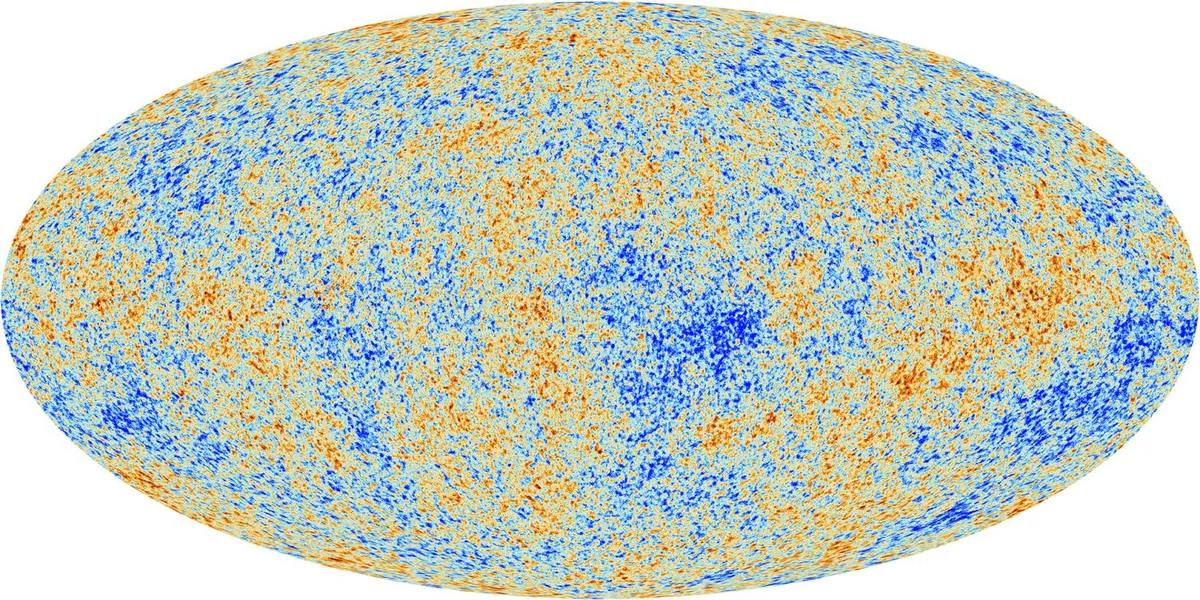
Isn't there one scenario that ends with a tear in space-time, or a tear in reality?
That one's called the big rip. So that one's related to the heat death in the sense that it's driven by the same thing.
The heat death is driven by dark energy in that dark energy is something that's making the Universe expand faster, and it's making galaxies get farther and farther apart from each other more quickly over time.
And we don't know what dark energy is. We think it's probably something called a cosmological constant, which is just a property that says every little bit of space has its own expansion built into it.But it's possible that dark energy is something else, that it's a dynamical process.
And if that's the case, there's a possibility that it could be a certain kind of dark energy called phantom dark energy, where it's not just that every little bit of space has this scratchiness in it, it's something that's building up over time. So the dark energy would be getting more and more powerful over time.
And the way that we think dark energy probably works, if it's a cosmological constant, is that it increases the empty space in between things, but it doesn't actually expand things themselves.
Because we know that dark energy is making the Universe expand faster and faster, it's harder to see how that expansion would ever stop and turn around.
So galaxies themselves don't get puffier in a cosmological constant Universe, but the spaces between the empty spaces, between galaxies, would get larger.
But if dark energy is this so-called phantom dark energy, then it does stretch things out that are already compact, so it does actually puff out galaxies and pull stars away from their galaxies over time.
And if this is what dark energy is, if it does have this this so-called phantom nature, then over time not only would galaxies get farther apart from each other, but they would themselves be stretched out and it would start unravelling the Universe from the outside in.
It would be pulling stars away from galaxies and then planets away from stars and then planets and stars themselves would be torn apart from the inside, from this internal stretchiness interior to the objects.
And if you know that this is happening, you can calculate that at some moment atoms and molecules and particles themselves will be ripped apart and all of space will be torn asunder. And that's called the big rip.
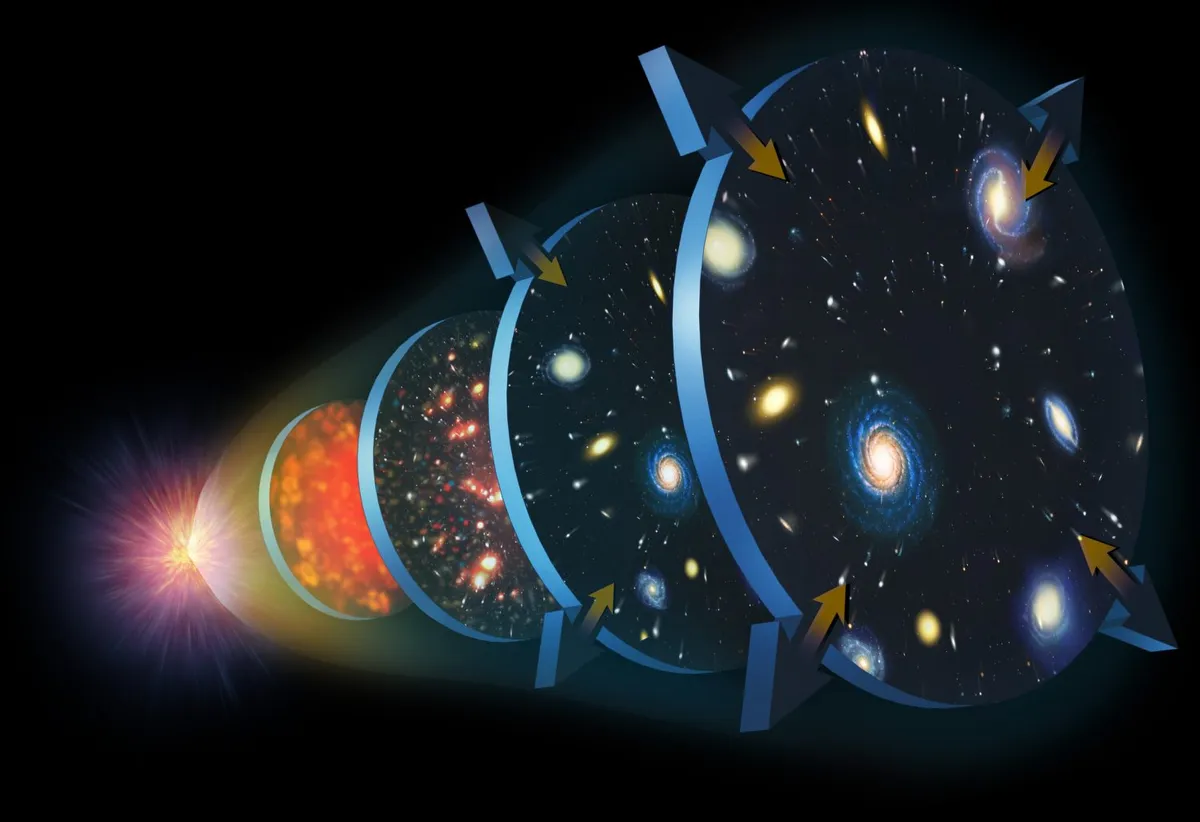
None of these scenarios so far is particularly inviting!
No I guess it really doesn’t go well for the cosmos in the end does it?!
Is the theory of the big crunch, of everything collapsing in on itself, still valid?
The big crunch was the favoured idea in the 1960s or so, and it’s been around for a while.
It’s this idea that the expansion of the Universe will at some point reverse and everything will come crashing back together and go into a hot, dense mess like we had at the beginning of our Universe.
It's not that we know that it's impossible, but because we know that dark energy is dominating the dynamics of the Universe and is making the Universe expand faster and faster, it's harder to see how that expansion would ever stop and turn around.
There was a time before we knew about dark energy when all we knew was the Universe was expanding.
We didn't know for sure if that expansion would keep going forever or if the gravity of everything in the Universe would slow the expansion down and then eventually reverse it.And right now, it doesn't look like the gravity of everything is enough to reverse that expansion.
But since we don't know what dark energy is, there is a possibility that dark energy could be something that could change in nature in such a way as to not cause expansion to accelerate, but to cause it to turn around in the future.
There aren't that many models that do that in the literature, but because we don't understand this very, very powerful component of our Universe, dark energy, we can't really say for sure that we know what it's going to do in the future.
So that is still a possibility in the sense that we can't completely rule it out.
My favourite scenario is one called vacuum decay, and that one technically could happen at any moment. It could happen right here, right now.
A big crunch would be a dramatic scenario as well because in that case all these distant galaxies we currently see moving away from us would start to move toward us and you would have more interactions between galaxies.
You'd have these big bursts of star formation and then everything would get more and more compressed.
And the way it would ultimately destroy everything is that not only would the galaxies come together, but all of the radiation in the universe would be compressed into a smaller space as well.
When galaxies collide, it's not that dangerous for the stars or planets in them, because there's enough empty space in galaxies that the stars get mixed up in their orbits, but collisions between stars are very rare.
But if you're if you're bringing all the radiation in the Universe into a smaller space, you're intensifying and focussing that radiation.
Then you get to a point where you start cooking the stars from the outside, and you start getting such intense radiation from all of the starlight that's ever shown in the Universe suddenly focussed into a smaller and smaller space so that it starts to ignite the surfaces of stars.
That's something that was worked out by Martin Rees, Britain's Astronomer Royal, in the 1960s or 70s. And it's a very fun idea that the stars would be cooked from the outside.
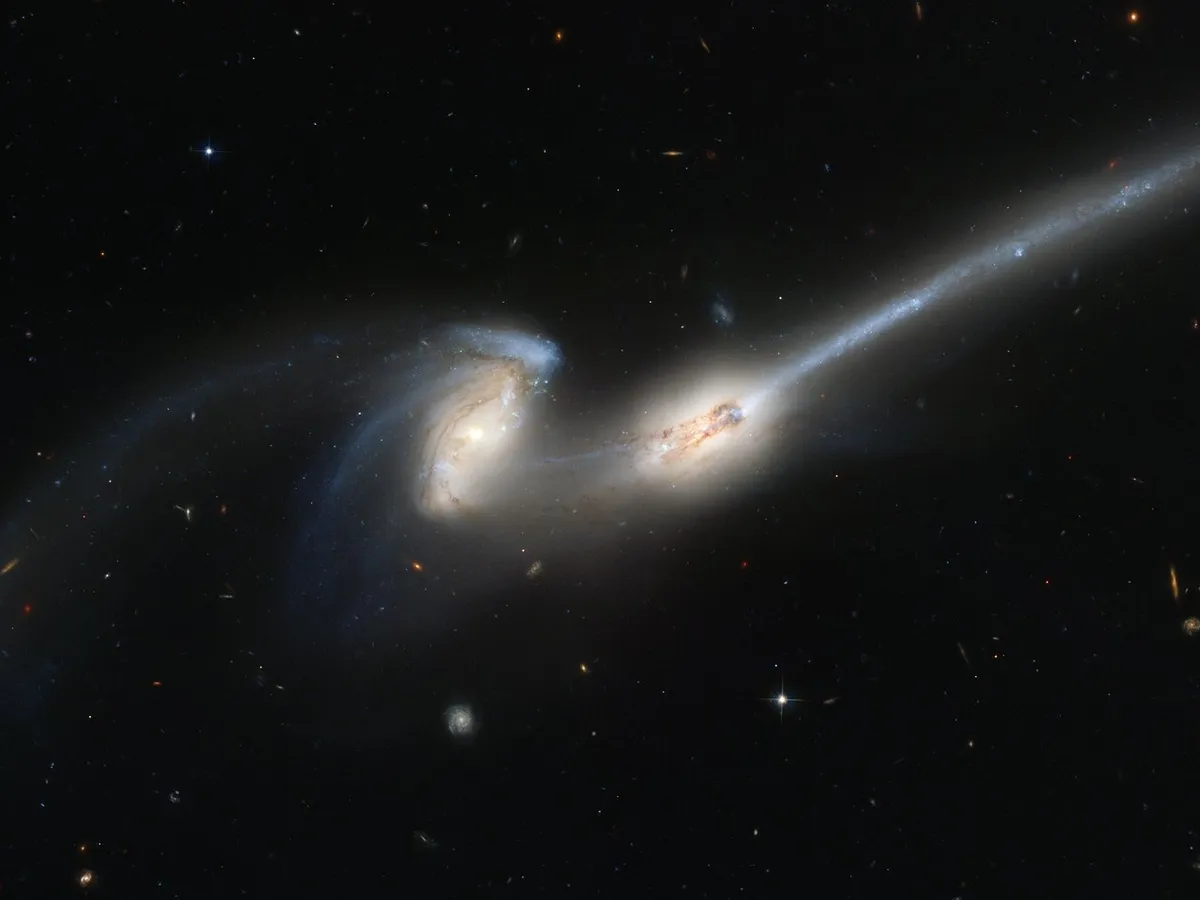
When the Universe does die, is there any chance it might be reborn?
There are models that suggest a cycle between a big crunch and then a new Big Bang and so on.
There aren't that many models that do that because it's a little bit complicated to figure out the mathematics of why the Universe would go through that crunch and come out on the other side.
The equations of general relativity, Einstein’s equations of gravity make it very simple to extrapolate that there was a singularity in the beginning, and if you have a certain balance of expansion and gravity, then there will be a singularity at the end: a sort of arc of expansionary collapse.
That kind of evolution comes very naturally out of general relativity, and we don't think that there was the kind of straightforward evolution in the beginning that that suggests either.
The idea of going to a singularity at the end, you can get that other equation, but then going through the singularity to something on the other side doesn't come naturally, so it's not straightforward.
But there are ideas of universes that compress and then expand again, driven by other new aspects of physics.
These beautiful nebulae with pillars of creation, star birth and supernova remnants: we won't have all those beautiful things in one hundred billion years. The cosmos is temporary.
In a few of those there are possibilities that you can have a kind of compression and then a re-expansion, a new Big Bang, and there are possibilities that a little bit of information might pass through the cycles. That ends up being a very intriguing idea.
I talk about that in the chapter of my book about bouncing cosmologies, where there could be something that changes the cycle in a really interesting way.
But a lot of those ideas are a little bit complicated in terms of how they deal with what gets recycled in and how entropy works, because entropy is this sort of disorder in the Universe that’s meant to be always increasing over time.
And if you have a Universe that keeps cycling, then the question of what that does to entropy is an interesting one.
Do you just increase entropy every cycle or is there a way that this breaks that rule? I explore a bit of that in the book as well.
So yeah, there is a possibility that there could be some kind of rebirth. There are a few a few ideas around that.
Unfortunately, we would still be gone! Our observable Universe would still be destroyed, but in a few of these scenarios there is the idea that something, some little bit of information, probably just the position of a black hole or something like that, some little information could survive through to the next cycle.
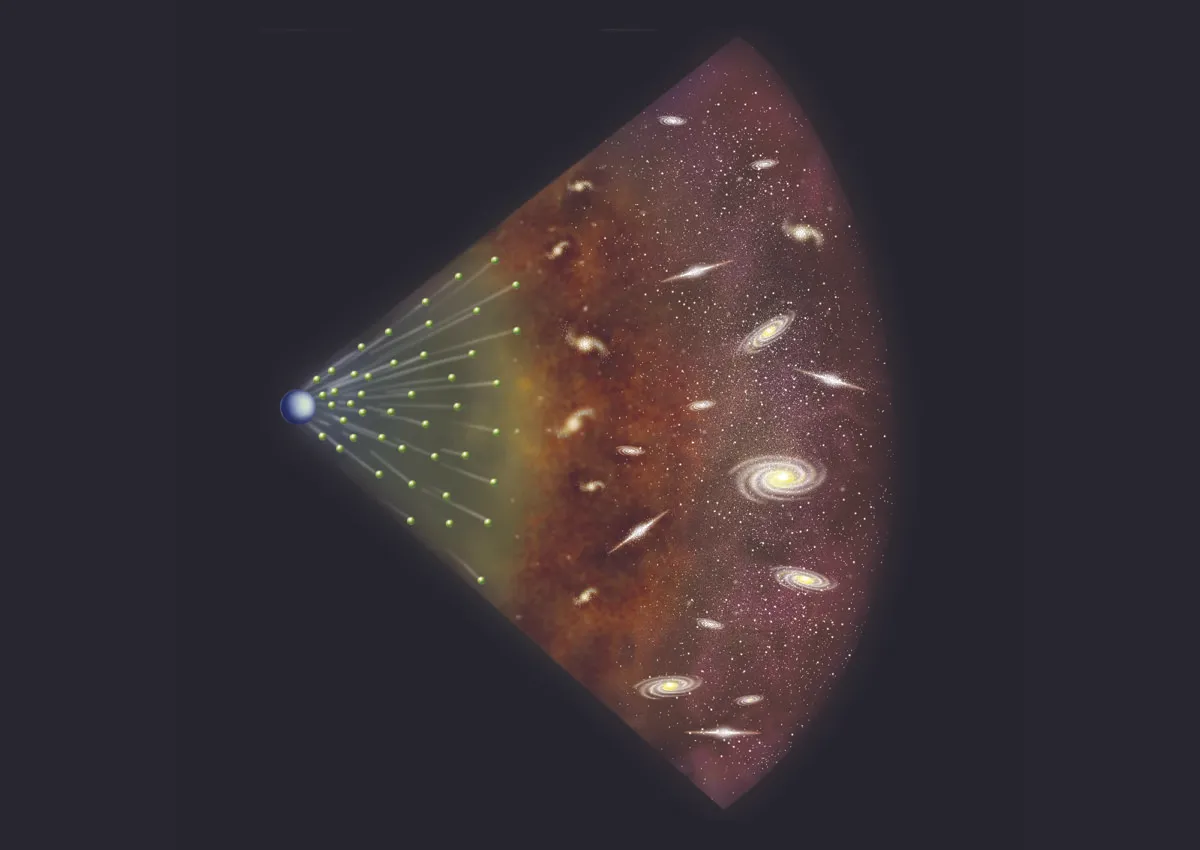
At the end of the Universe, what would happen to human beings?
It depends on the scenario. With the heat death, everything would decay.If you managed to stick around through all of that you would just see the Universe getting darker and darker and darker, and eventually your particles would decay.
A big rip scenario would be one of the more dramatic ones, because you would watch the stars at the edge of the Galaxy drift away.
You would watch the Milky Way fade out in the night sky. Earth would be drifting away from the Sun. It would get darker.
You would start floating into empty space. And then very shortly before the end, Earth itself would be torn apart, would explode in some way. Then your own atoms would be ripped apart.
When I was writing the book I was thinking about how you would prolong your life in this situation
What you would want to do is get into a very small space capsule and wait it out because the problem is that space itself is trying to rip you apart, so you want to have as little space close to you as possible.
You don't want to be dependent on things that need a lot of space like a planet.So you get into your little space capsule and then it's not until very close to the end that that space capsule itself gets ripped apart and then you die.
So that one would be quite a scary thing to go through.
The big crunch would be quite scary as well, because you would also see that coming.
You would see that the galaxies are starting to approach and you would see that the background light is getting brighter and hotter and higher frequency, more hard radiation, and the Universe would just get very, very hot.
That would be quite scary, to just be slowly cooked in your own space.
And then there's one scenario in which the Universe will start to start to compress a little bit. You'll see galaxies start to come together. And then suddenly you would be incinerated by this new scalar field, which is a kind of new energy field, throughout space.
But my favourite scenario is one called vacuum decay, and that one technically could happen at any moment. It could happen right here, right now.
You may be aware of the Higgs-Boson. It’s this particle that the Large Hadron Collider discovered in 2012 that has to do with how particles got mass in the early Universe. (For more on this, read our conversation with theoretical physicist John Ellis)
The Higgs-Boson is a particle that's connected to the Higgs field, which is a sort of energy field pervading all of space.
And the properties of the Higgs field are connected to how the forces of nature work, the constants of nature, the strength of the electric field of an electron or the mass of a proton, all these kinds of things.
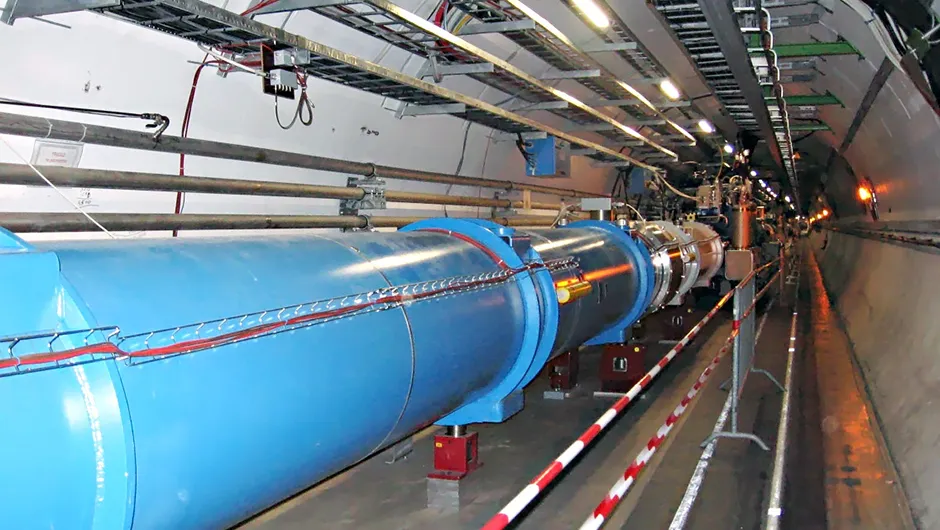
The properties of the Higgs field tell us something about how physics works, and there's this intriguing possibility that particle physicists have discovered somewhat recently that the properties of the Higgs field might not be fully stable.
The Higgs field is an energy field that's sitting at a certain value, a certain energy, and it's possible that that value might change.
If it did, then that would change the laws of nature. It would create a different kind of space, a kind of space that we couldn’t live in.
It seems there is a possibility that the Higgs field could randomly, in one place in the Universe, undergo a transition, a quantum tunnelling transition that could happen at any time, a kind of transition where the Higgs field at that one spot would transition to this different value.
That would create this bubble of a different kind of space: what's called a true vacuum.
And this true vacuum would expand throughout the Universe at the speed of light or thereabouts and destroy everything in its path.
All around us, every direction we look, if we look far enough away, we see a Universe that's still on fire from the heat of creation.
The amazing thing about this is could it happen in any moment, you can’t predict it.
But also you wouldn't see it coming because it's happening at about the speed of light, and since light travels at that speed, you don't have any signal that could get to you before the bubble does.
So if this bubble is expanding through space at the speed of light, then then it'll hit you before you know it, and you won't even feel it because your nerve impulses don't travel that quickly.
It'll just wipe out everything and that'll be it for the Universe.
And this is a fun idea because it's so dramatic and it's so extreme and final. But whenever I explain this to people, I have to be very careful to say, you know, this isn't actually something you should worry about!
The most obvious reason is that there's nothing you could do about it. You wouldn't see it coming.
But the the slightly more reassuring reason is that we don't know for sure if it can happen, because this is based on an understanding of physics that we know is not complete.
When people do the calculations of how long this tunnelling event is likely to take in terms of what the average decay time of a Universe like ours is, you get numbers like 10 to the power of 100 years or even 10 to the power of 500 years.
What that means is that although this event is random, like any sort of quantum event, there's also a timescale associated with it.
Just like if you were watching radioactive decay, there'd be a timescale associated with how long it would take to decay.
You wouldn't know when any particular particle would go, but you expect a half-life of 3 hours or something. And for our Universe, that kind of timescale is something closer to 10 to 100 or more years.
So it's probably not going to happen anytime soon. But it could. And that's the thing that that I think is is the most fun about it.
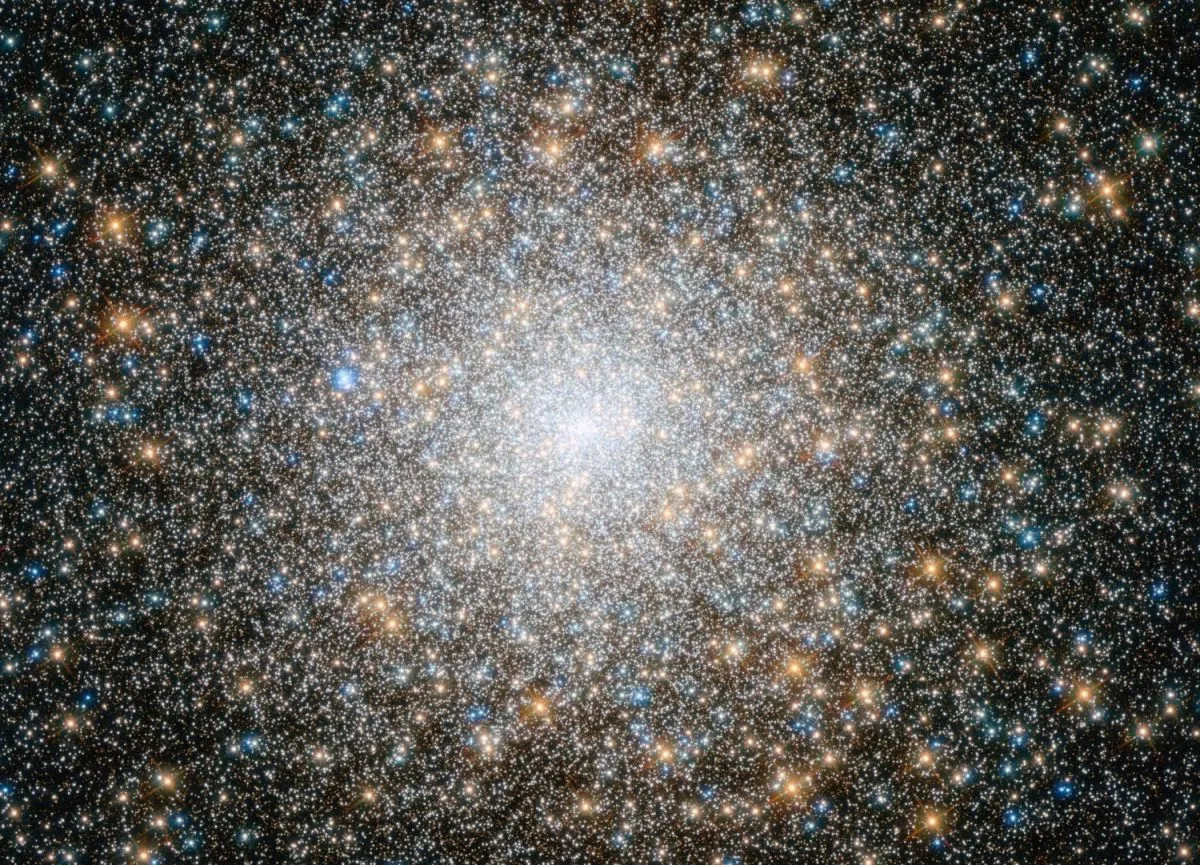
Is there an assumption that physics operates the same way across the Universe? Is there a chance that physics does’t operate the same way across the Universe?
That comes into ideas of the multiverse. So one of the ways that physicists talk about a multiverse is the idea that there are regions of a larger space, regions of the Universe broadly defined, where you could have different laws of physics, where the constants of nature might be different somewhere else.
And that might be because of the processes that happen in the beginning of the Universe, where you can create different pockets of Universe that have different properties, different constants for nature and different evolutions and so on.
So it's very possible that somewhere outside of our observable Universe, there are places where physics acts very differently.
Our observable Universe appears to be pretty uniform, but our observable Universe is just defined as the volume around us where light would have taken the entire age of the Universe to get to us from the edge of that volume.
In principle one could see farther than that, but it would take the light so long to get to us that it hasn't got here yet. That's how you define an observable Universe.
Thinking about the end of the Universe...you’re always aware of the extreme insignificance of the world and humanity in the bigger picture, in the broader context of space and our Galaxy.
And so we have this observable Universe around us and we have a pretty good idea of the properties of space in that volume, but we don't know anything about what's beyond that because we can't see beyond that.
In fact, we never will, because now that the Universe is accelerating in its expansion, we're not going to be able to see more objects beyond that that point, because they're being carried away from us so quickly by the expansion of the Universe.
So what's beyond there, we don't know. It's very possible that that we're in a much larger space, and it seems very likely, based on what we understand about the beginning of the Universe.
What’s in that larger space? It could be anything.
And we have reasons to believe that there really could be very different properties of that larger space, and it’s just that our own space has a particular set up, but that's because it's a smaller piece of something much bigger.
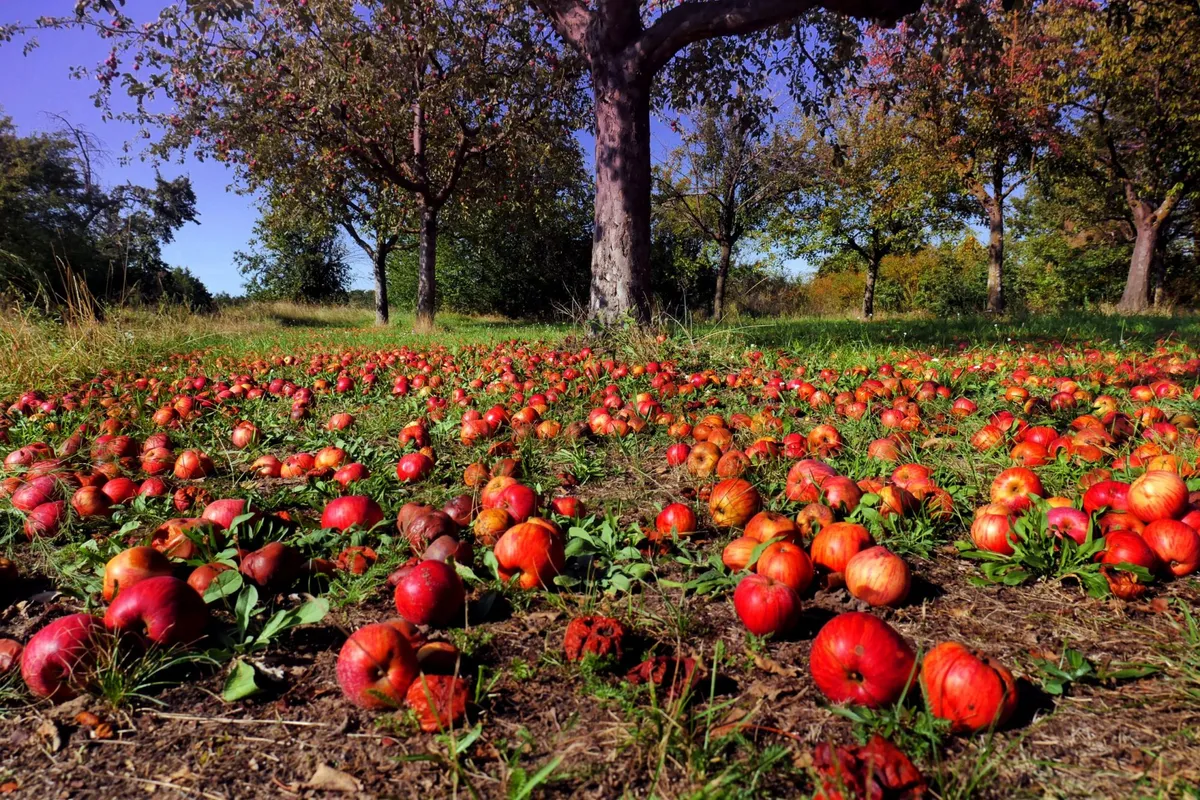
Does being an astrophysicist change your outlook on life?
Thinking about the end of the Universe constantly for the last couple of years definitely has had an impact! I think that's hopefully understandable.
But it does change your perspective in terms of always having this bigger picture in mind.
You’re always aware of the extreme insignificance of the world and humanity in the bigger picture, in the broader context of space and our Galaxy.
I mean, even our Galaxy is insignificant in the bigger picture of the cosmos.
And this time that we're living through where new stars are forming and we can see huge regions of the Universe, this time is temporary, because in 100 hundred billion years we won't be able to see other galaxies anymore and stars will be burning out and new stars won’t be forming all the time.
These beautiful nebulae with pillars of creation, star birth and supernova remnants: we won't have all those beautiful things in one hundred billion years.
That's a long time, but it does highlight this space that we're in, this habitable condition that we're in, that the cosmos is temporary.
And there's something confronting about that, even though the timescales are so long as to be totally immaterial to a human life.
It still does make you think about the broader picture and how we fit into that and how we should respond to the opportunity we have to understand and appreciate the cosmos.
It gives me a perspective that makes me appreciate what we have a little bit more by knowing that it's temporary and that not all creatures in the cosmos might be so lucky.
It's an interesting place to spend your time mentally in this bigger space, bigger picture.
What astounds you most, then, about the Universe?
The thing that I find most amazing and most beautiful is how much of the cosmos we can really see and understand.Even though we are these dramatically insignificant beings, we can understand what the Universe is made of.
We have very good measurements of the fact that something like 70% of the Universe is this invisible dark energy that we don't understand, but which is stretching out the Universe.
We know that about 25 % of the Universe is dark matter, which is this invisible stuff that holds galaxies together.And we don't know what that is, but we can measure how much of it there is out there and we can infer its existence.
We know quite a lot about the evolution of the cosmos. We know how it's been changing over time and we can extrapolate into the future.
For me the most amazing thing is when we study the Big Bang, the way that we can study it is by seeing it directly.
So when you look out into the cosmos, you're looking into the past because light takes time to travel.And so you can see a galaxy that's a billion light years away and you're seeing the light as it came to us a billion years ago.
When you look at the most distant galaxies, you're seeing galaxies that lived in a cosmos that was less than a billion years old.You're looking into this young Universe and we can actually see the light from the Big Bang.
We can see directly the light from when the Universe was still hot and dense and glowing with heat. And all around us, every direction we look, if we look far enough away, we see a Universe that's still on fire from the heat of creation.
That, I think, is completely amazing.
And we can study the properties of that light from this primordial fire and we can learn about what the Universe is made of by looking at patterns. It's beautiful and amazing.
And I'm proud of us as humans to have figured that out, and I feel very lucky to be in in a cosmos where we can learn that and we can see all that.
That's the thing that astounds me the most.
For more cosmological musings, follow Katie Mack on Twitter. Katie's book The End of Everything is published by Penguin.
